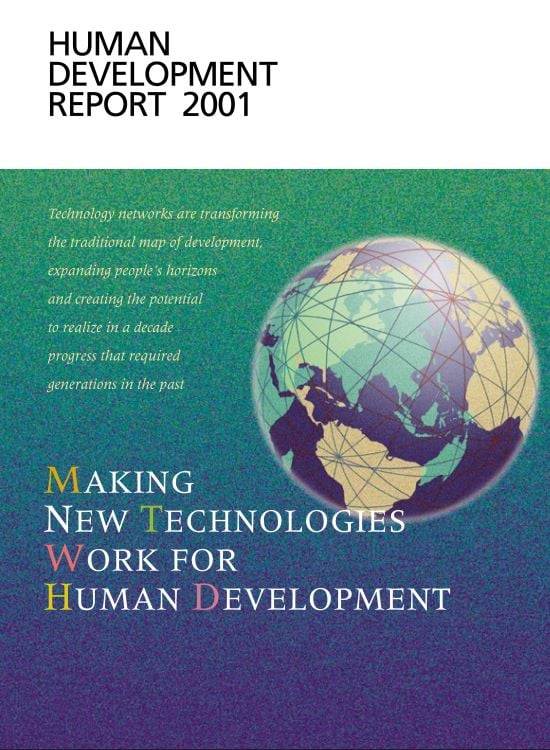Human Development Report 2001
Making New Technologies Work for Human Development

UNDP (United Nations Development Programme). 2001. Human Development Report 2001: Making New Technologies Work for Human Development. New York.
Human Development Report 2001
Making New Technologies Work for Human Development
The 2001 Report, like all previous Human Development Reports, is about people. It is about how people can create and use technology to improve their lives. It is also about forging new public policies to lead the revolutions in information and communications technology and biotechnology in the direction of human development.
This Report looks specifically at how new technologies will affect developing countries and poor people. Many people fear that these technologies may be of little use to the developing world—or that they might actually widen the already savage inequalities between North and South, rich and poor. Without innovative public policy, these technologies could become a source of exclusion, not a tool of progress. The needs of poor people could remain neglected, new global risks left unmanaged. But managed well, the rewards could be greater than the risks.
The technology divide does not have to follow the income divide. Throughout history, technology has been a powerful tool for human development and poverty reduction. The 2001 Report demonstrates that:
- People all over the world have high hopes that new technologies will lead to healthier lives and more productive livelihoods;
- The 20th century’s unprecedented gains in advancing human development and eradicating poverty came largely from technological breakthroughs;
- In the network age, every country needs the capacity to understand and adapt global technologies for local needs; and
- Policy, not charity, will determine whether new technologies become a tool for human development everywhere.